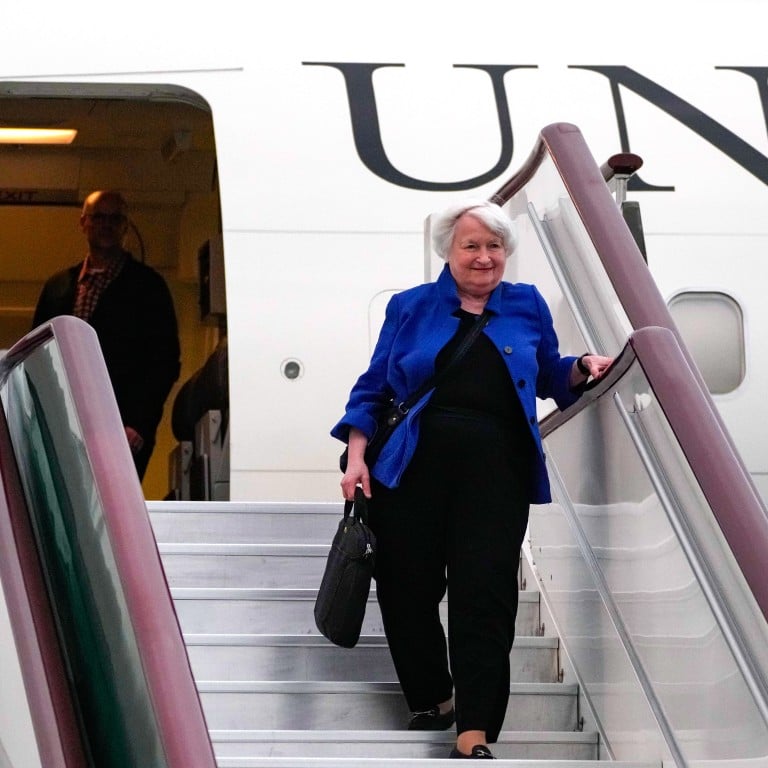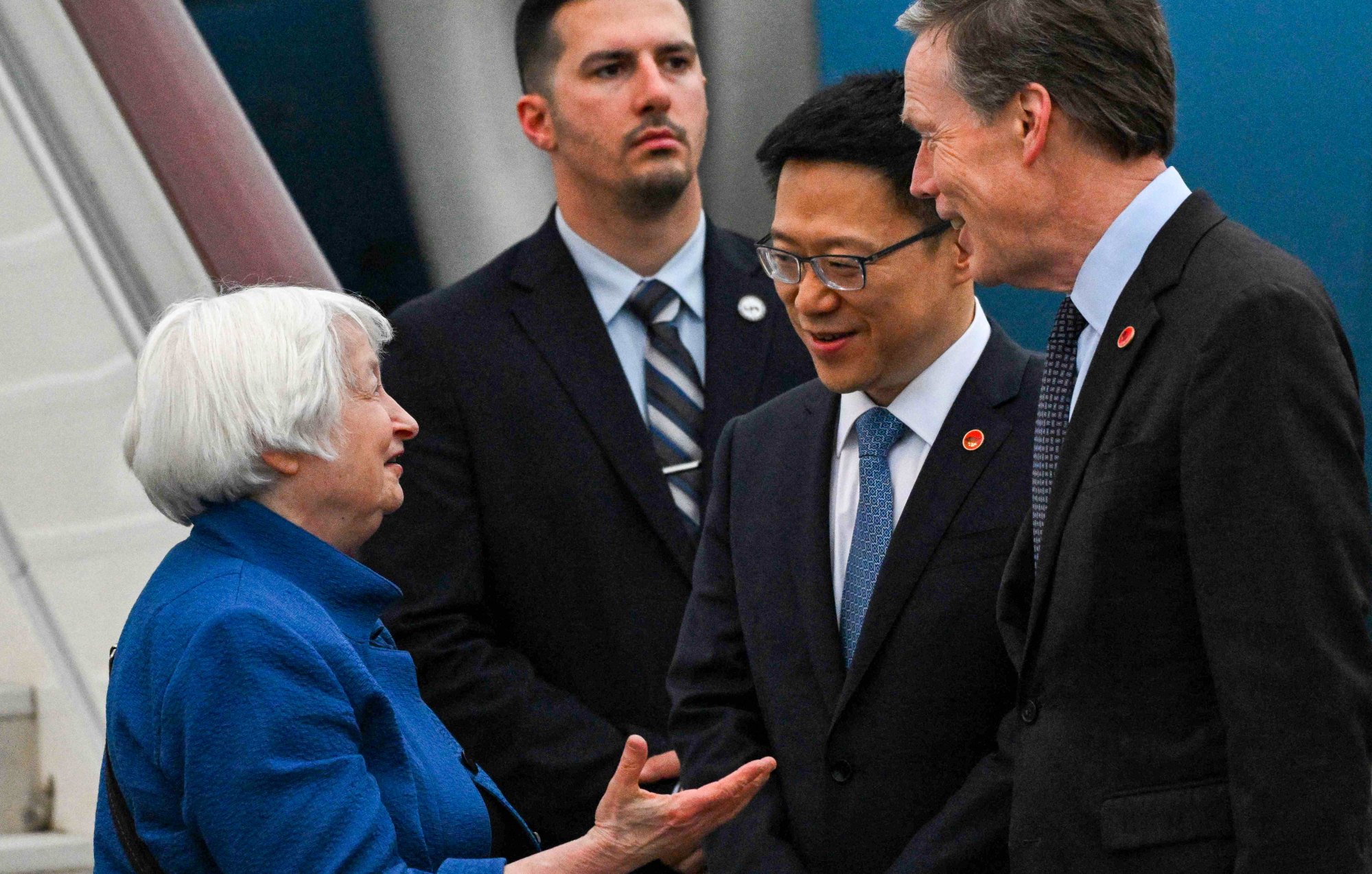
Janet Yellen in China: US treasury secretary aiming to keep trade relations on firmer footing
- US Treasury Secretary Janet Yellen arrived in southern Chinese city of Guangzhou Thursday evening on first leg of her week-long trip
- Industrial overcapacity, global financial stability and ‘unfair trade practices’ among top issues to be discussed with Chinese officials during visit
US Treasury Secretary Janet Yellen arrived in the southern Chinese city of Guangzhou on Thursday for the first leg of her week-long trip aimed at helping manage the trade relations between the world’s two largest economies.
Yellen, who arrived in Guangzhou just after 6pm local time, media reports said, was greeted by China’s vice-minister of finance, Liao Min, and US ambassador to China Nicholas Burns.
Ahead of her trip, Yellen said she would seek to “advance America’s economic and national security interests”, adding that the US had worked to “responsibly manage” its relationship with China.

“During my time in China, I’ll focus on advancing a healthy economic relationship that provides a level playing field for American workers and firms, and furthering cooperation on shared challenges like illicit finance and climate change,” she wrote Thursday morning on X, formerly known as Twitter.
“As the world’s two largest economies, it is critical that we maintain clear channels of communication – particularly when we disagree. The American people expect us to responsibly manage this relationship, and the world expects that we work together where we can.”
Yellen is widely viewed as one of the most dovish members of the Biden administration, and has years of experience in negotiating with the Chinese officials.
Before her departure on Tuesday, Yellen said she would advocate for American workers and businesses to ensure they are treated fairly.
Yellen said she would also “press Chinese counterparts on unfair trade practices”, as well as industrial overcapacity, and to discuss cooperation in the fight against illicit finance, global financial stability, climate change and debt relief of some developing countries.
According to Bloomberg, Yellen suggested that the US would retain the option to protect new industrial sectors against China as Beijing poured money into manufacturing and exporting goods in new industries such as renewable energy.
US-China all-out trade war unlikely but soft-power gap will persist: Joseph Nye
The treasury secretary had earlier warned that Beijing’s past support for sectors like steel and aluminium had led to “substantial overinvestment and excess capacity”, and that this was now happening in industries like solar and electric vehicles.
Yellen is scheduled to have a round table discussion with economists to discuss challenges and opportunities in the Chinese economy on Friday morning, before meeting US business representatives to hear their thoughts on China’s overcapacity, intellectual property protection, and other on-the-ground issues in the afternoon.


